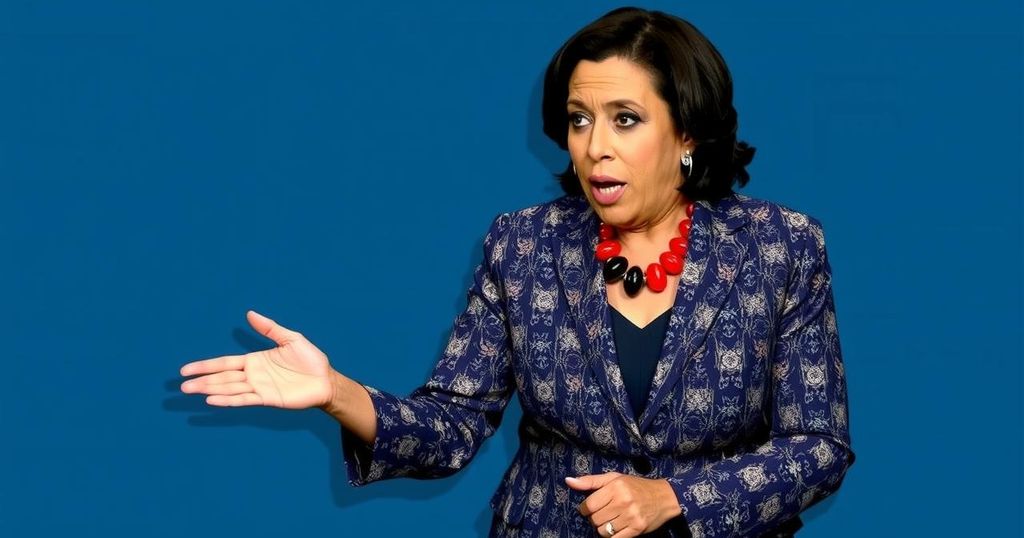Harris Reclaims Lead as Key Demographics Shift in Polling Ahead of 2024 Election
Vice President Kamala Harris has regained a slight edge over Donald Trump among likely voters according to the latest ABC News/Ipsos poll, showing 51% to Trump’s 47%. This tight race is underscored by demographic shifts in voter support, particularly among Hispanic voters favoring Harris. Voter trust on handling critical issues diverges between the candidates, while personal attributes depict Harris as favorably perceived in several regards. The electoral outcome remains uncertain as the influence of the Electoral College looms large alongside the critical need for voter turnout.
In the latest ABC News/Ipsos poll, Vice President Kamala Harris has regained a modest lead among likely voters nationally. As the campaign for the 2024 presidential election intensifies, this slight advantage comes amid a context where the outcome remains largely influenced by the Electoral College dynamics. The poll indicates that Harris enjoys a narrow lead of 2 percentage points over former President Donald Trump among registered voters, with figures showing Harris at 49% compared to Trump’s 47%. Among likely voters, the lead expands to 51% for Harris and 47% for Trump, signaling a potentially advantageous rallying of voter support for Harris, particularly within demographic inclinations traditionally aligned with the Democratic Party. Notably, Harris has regained significant backing among Hispanic voters, reflecting a strategic advantage that may play a crucial role in battleground states like Arizona and Nevada. In this cohort, she commands a 30-point lead over Trump, harnessing support from 64% of Hispanic likely voters. Conversely, Trump consolidates his appeal among rural demographics and non-college-educated white men, where he retains a substantial lead. The candidates exhibit distinct divides in voter trust on key issues. Trump leads by substantial margins concerning immigration, the economy, inflation, and the Middle East, while Harris showcases preferences in handling abortion and healthcare. Although economic concerns remain paramount among voters, there is an observed decline in the perception of these issues as critical, which may indirectly favor Harris given current sentiments toward the Biden administration’s economic management. Additionally, concerns about protecting democracy feature prominently, underscoring the importance of this theme in the election discourse. As the election landscape unfolds, the perception of personal attributes plays a critical role. Harris outperforms Trump in numerous significant metrics, including perceived mental sharpness and honesty. However, there is parity between the candidates regarding crisis management attributes, emphasizing the importance of this characteristic in contemporary political climates. Voter turnout remains a focal point, with both candidates exhibiting comparable enthusiasm levels among their respective supporters, although Harris currently surpasses Trump in campaign engagement efforts. In sum, Harris’s slight lead in national polls underscores a competitive electoral landscape, with diverse voter demographics influencing the race. Leaving room for uncertainty, particularly with independent voters, the campaigns must navigate the complexities of turnout and voter mobilization as the election date looms closer.
The context of this article centers on the recent polling data leading up to the 2024 presidential election, specifically focusing on Vice President Kamala Harris’s standing against former President Donald Trump. Polls are invaluable in gauging public sentiment and voter preferences as candidates vie for pivotal support across key demographic groups. The electoral landscape is characterized by Harris’s efforts to consolidate support among traditional Democratic voter bases while also addressing significant issues that resonate with the broader electorate. As economic conditions and social issues shape voter perspectives, the Electoral College system adds another layer of complexity, influencing candidate strategies as they seek necessary support from vital states.
In conclusion, the recent ABC News/Ipsos poll reveals a closely contested race as Vice President Kamala Harris edges ahead of Donald Trump among likely voters. Notable shifts in demographic support, particularly among Hispanic voters, as well as varying perceptions of trust regarding key issues, highlight the competitive nature of the upcoming election. Both candidates harbor distinct advantages and challenges, with the potential ramifications of the Electoral College emphasizing the importance of targeted voter outreach and turnout strategies moving forward.
Original Source: abcnews.go.com




Post Comment